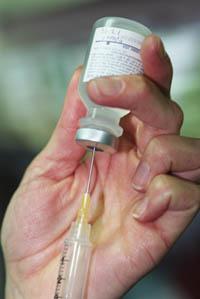There is no relationship between triple vaccine and risk of autism

In the period 1988-99, data were analyzed for 305 children under the age of twelve who have been diagnosed with autism. They did the same with 114 children between 2 and 5 years old born in 1988-93.
Among children aged 12 years and younger, 7 cases of autism were diagnosed: In 1988, 0.3 cases of 10,000 people were collected, compared to 2.1 of 10,000 in 1999. In children aged 2 to 5 years, the number of those diagnosed with autism increased by almost 4, from 10,000 to 8 cases in 1988 to 10,000 in 1999 to 29.
On the other hand, the percentage of children vaccinated with triple vaccine between those years has not varied, but has been applied to 97% of children born in the year and without distinction between boys and girls.
If the triple vaccine was the most important responsible for the increase in autism cases, after a few years of integration of all newborns into the system, the increase in autism cases would be paralyzed. But the results of the study show that it has not been so. According to the researchers, this increase in cases of autism may be due to other factors, such as better knowledge and acquisition of the disease by parents, increased attention to new cases by medical personnel, modification of diagnostic criteria or other factors of the still unknown environment.
This study has clarified concerns about the relationship between the triple vaccine and autism.
Buletina
Bidali zure helbide elektronikoa eta jaso asteroko buletina zure sarrera-ontzian








